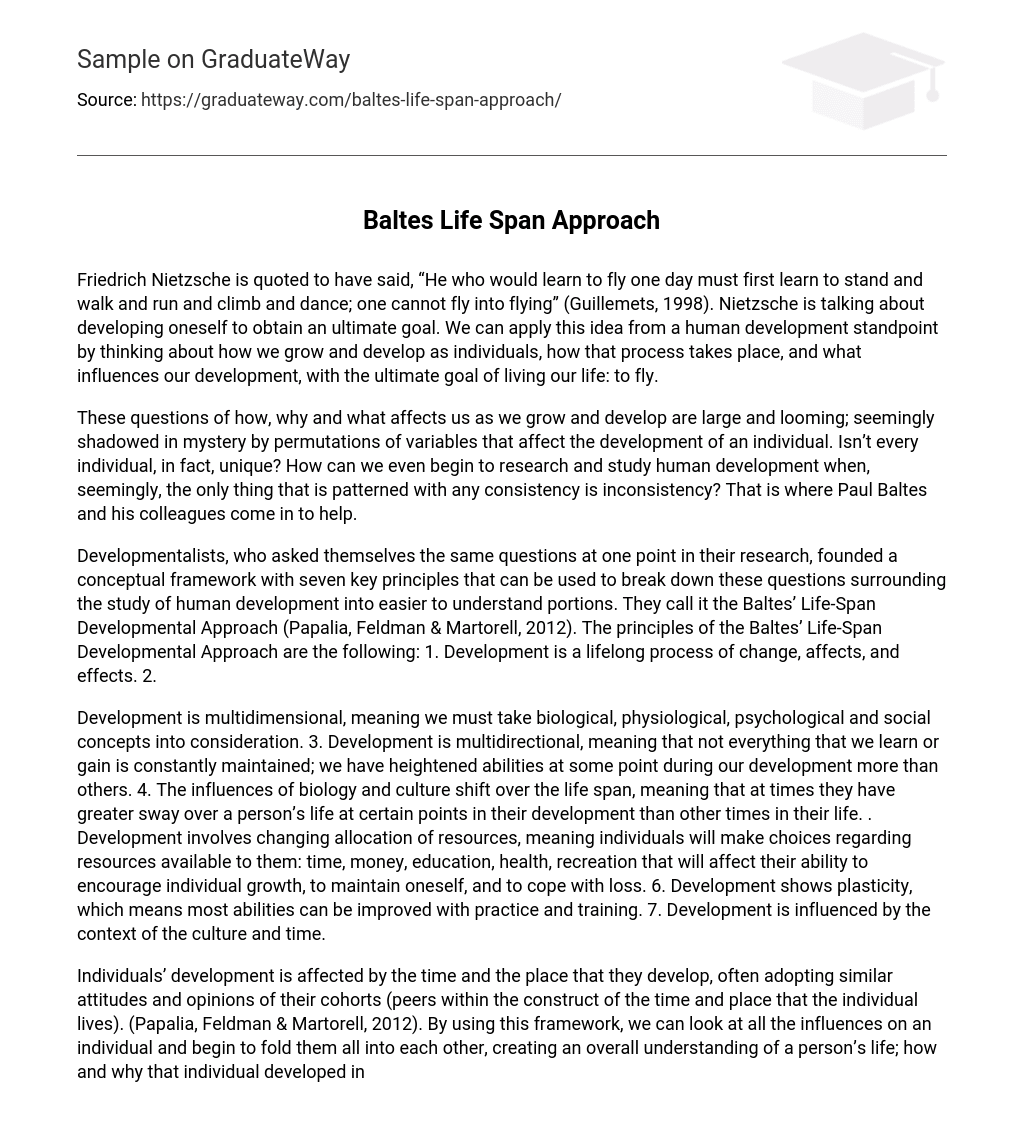The philosopher Friedrich Nietzsche famously said, “He who would learn to fly one day must first learn to stand and walk and run and climb and dance; one cannot fly into flying” (Guillemets, 1998). This quote highlights the significance of gradual personal growth in attaining our ultimate objectives. Concerning human development, this idea pertains to our individual changes, the process of growth itself, and the influences that shape our development. Ultimately, our goal is to live in a manner that enables us to soar.
There is a sense of confusion surrounding the effects of growth and development on individuals due to various influencing factors. Each person’s development is unique, making the study of human development challenging as inconsistency appears to be the only predictable pattern. Fortunately, Paul Baltes and his colleagues offer their assistance.
The Baltes’ Life-Span Developmental Approach was created by developmentalists to simplify the study of human development by breaking down the questions into manageable portions. This approach consists of seven key principles (Papalia, Feldman & Martorell, 2012). The principles are: 1. Development is a lifelong process of change, influences, and outcomes. 2.
The process of development is intricate and incorporates biological, physiological, psychological, and social elements. It is also diverse, indicating that certain abilities and knowledge gained during development may hold more prominence than others. The influences of biology and culture fluctuate throughout a person’s lifespan, exerting varying levels of impact at different developmental stages. Development entails the allocation of resources like time, money, education, health, and recreation which individuals must judiciously select to foster personal growth, self-sustainability, and resilience in the face of challenges. Moreover, development demonstrates adaptability as most skills can be enhanced through practice and training. Lastly, cultural and temporal contexts significantly shape the course of development.
According to Papalia, Feldman, and Martorell (2012), an individual’s development is influenced by the time and place in which they develop. During this time and place, individuals often adopt similar attitudes and opinions as their peers. By considering this framework, we can examine the various influences on an individual and integrate them together to gain a comprehensive understanding of their life. This allows us to understand how and why an individual has become the person they are today, or in Nietzsche’s words, how they have learned to “fly”.
To illustrate and apply this concept, I will use my personal life experiences and apply them to the Baltes framework. By considering these influences as a whole, I will show how they have impacted my overall development. Kindly proceed to the following two pages.
References
Guillemets, T. (1998, March 18). The quote garden. Retrieved from www.quotegarden.com/flying.html Papalia, D., Feldman, R., & Martorell, G. (2012). Experience human development. (12 ed., p. 18 & 19). NY, NY: McGraw-Hill.





